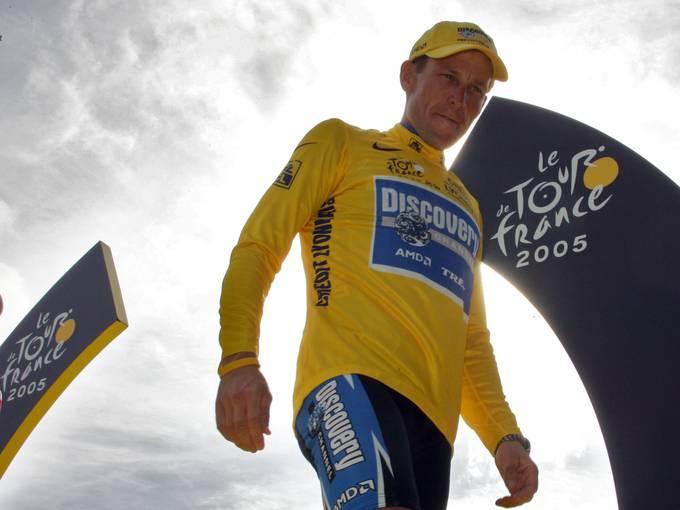LONDON (AP) — The International Cycling Union disbanded an independent panel put together to review any involvement the cycling governing body had in the Lance Armstrong scandal, saying it will go ahead with a “truth and reconciliation commission” instead.
The UCI said its independent panel did not have the support of the American and global anti-doping bodies, and that a truth and reconciliation process favored by those groups offered the best way “to clear the air” and get to the bottom with the rampant doping culture during the Armstrong era.
The UCI put together the panel in November to investigate accusations made by the U.S. Anti-Doping Agency that it helped cover up suspicious doping tests given by Armstrong and donations from the cyclist totaling $125,000. Those accusations were part of a report published by USADA that led to Armstrong being stripped of his seven Tour de France titles and eventually confessing to doping after years of denials.
WATCH: Lance Armstrong sings Radiohead’s ‘Creep’ during Oprah confession[1]
The independent panel held its first public hearing on Friday, but it was immediately undermined by the UCI’s decision to set up a separate truth and reconciliation commission, which will have the backing of WADA and could lead to cyclists being offered amnesty for confessing to doping violations.
The UCI said in a statement Monday that it was pointless to continue funding the independent panel because USADA and the World Anti-Doping Agency “refused to cooperate” with its inquiry.
“The Independent Commission itself has said that any report it produced without these bodies being involved in the process would be dismissed as not being complete or credible,” the UCI said.
NEW TIFF WITH USADA: Armstrong ‘will cooperate’[2]
UCI President Pat McQuaid said he spoke to WADA counterpart John Fahey over the weekend, who told him the anti-doping agency “had no confidence” in the existing panel.
“We have listened carefully to the views of WADA, USADA and cycling stakeholders and have decided that a truth and reconciliation process is the best way to examine the culture of doping in cycling in the past and to clear the air so that cycling can move forward,” McQuaid said. “We will now focus our efforts on establishing a TRC, with which we expect WADA to be fully engaged, to look at doping in professional cycling, as well as the allegations contained in the USADA reasoned decision.”
The UCI did not give a detailed timeline for when the TRC may be up and running, saying only that it will be launched “later this year.”
“This is too important for rushed discussions, or hasty decisions,” McQuaid said. “It is completely unrealistic to expect that we and WADA can sort through all the details of setting up a Truth and Reconciliation Commission in just a couple of days.”
PHOTOS: LANCE ARMSTRONG THROUGH THE YEARS
Copyright 2012 The Associated Press. All rights reserved. This material may not be published, broadcast, rewritten or redistributed.
